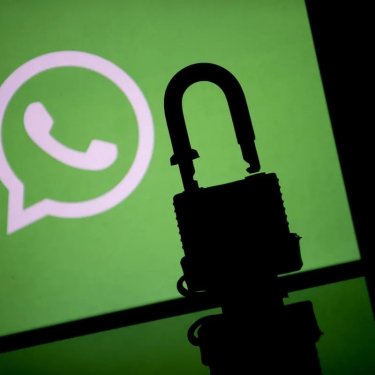WhatsApp blocks accounts of at least seven Gaza Strip journalists

For no apparent reason, WhatsApp blocked the accounts of many Palestinian journalists in the Gaza Strip after the start of the ceasefire between Israel and Hamas on 21 May. Reporters Without Borders (RSF) deplores this repeated blocking, which has the effect of censoring Palestinian journalists, and urges WhatsApp to be more transparent about its moderation and appeal mechanisms.
"Your phone number is banned from using WhatsApp. Contact support for help." This is the only message – without any other explanation – with which many Palestinians, including at least seven journalists in the Gaza Strip, learned that they could no longer use the instant messaging service in the hours following the start of the ceasefire.
They were all members of information-sharing groups that had become even more active than usual since the start of the armed hostilities between Hamas and the Israeli armed forces on 10 May.
“Our work usually consists of posting information on newsgroups, and communicating with colleagues and journalists, for the purpose of following events,” RSF was told by Zaanoun, who has been deprived of the WhatsApp account he had been using for the past eight years.
Dahdouh told RSF that he tried contacting WhatsApp to question the decision to block his account but never obtained any response. His account was nonetheless restored three days later, after Al Jazeera headquarters in Doha interceded on his behalf.
This is not the first time that Palestinian journalists have been stripped of access to WhatsApp at a time when many news events are taking place and following developments as they happen is crucial.
In November 2019, during an Israeli counter-offensive in response to rocket fire by Islamic Jihad, the WhatsApp accounts of BBC in Arabic bureau chief Rushdi Abu Alouf, freelance photojournalist Nahed Mansour, Eye Media reporter Jihad Baroud, Smart Media reporter Alaa Abu Mohsen, AFP photographer Said Khatib, and Mostafa Haboush, a photojournalist with the Turkish news agency Anadolu, were all blocked in similar circumstances.
“This new wave of bans on journalists shows that the algorithms used by WhatsApp to moderate groups are flawed,” said Iris de Villars, the head of RSF’s Tech Desk. “We urge WhatsApp to be more transparent about its reasons for blocking users and to improve its existing appeal mechanisms so that journalists who rely on WhatsApp to share information can quickly recover access to their accounts.”
Sabrina Bennoui, the head of RSF’s Middle East desk added: “As well as WhatsApp, Palestinian journalists are liable to find themselves being blocked when using other digital tools – a situation that does not exist anywhere else in the Middle East. Covering a conflict involves accessing content that is violent or comes from armed groups. This should not turn these journalists into the targets of indiscriminate moderation policies that effectively censor them.”
According to Sada Social, a Palestinian platform that monitors social media account deletions, 20 WhatsApp accounts were arbitrarily blocked in May 2021, while 80 were arbitrarily blocked during the previous Israeli military operation in November 2019 – these blockings affecting not only Palestinians in the Gaza Strip but also in the West Bank and diaspora. Sada Social reports that more than a thousand Palestinian Facebook, Instagram, Twitter and YouTube accounts were blocked in 2020.
When contacted by RSF, WhatsApp attributed the account blocking to moderation errors and denied any form of censorship.
“We ban accounts to comply with applicable law and with our policies to prevent harm,” WhatsApp said. “In this case, a number of journalists were inadvertently impacted and we worked quickly to reinstate their accounts. WhatsApp is relied upon by journalists around the world and the last thing we want to do is make it harder for them to do their valuable and important work.”
WhatsApp’s rules on usage are in line with US legislation, which requires it to block an account immediately if used to circulate child pornography or any content promoting terrorism as well as groups representing designated terrorist organisations, for example. As WhatsApp has no access to its encrypted chats, it uses algorithms that scan non-encrypted information including the names of individual users and user groups, their descriptions and their profile photos. And these algorithms may have decided to ban accounts held by journalists who are members of chat groups operated by Hamas representatives.
Malicious reporting is another possibility. You can join a private WhatsApp by group by adding existing members to your contacts and by sending invitation links. Any outsider can get into a group and then report it. Government intelligence agencies or the supporters of certain movements sometimes use "mass reporting” to manipulate algorithms into closing accounts.
Israel and Palestine are ranked 86th and 132nd respectively in RSF's 2021 World Press Freedom Index.



